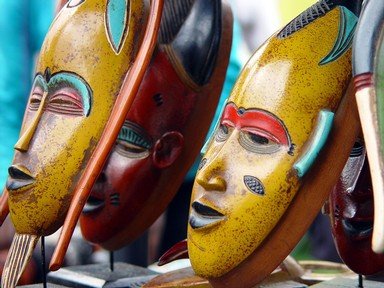
Far Over Wood and Mountain Tall Quiz
Many African cultures and ethnic groups live away from urban societies, including in forests and mountainous areas. This quiz asks you to match some of those cultures with their respective countries (where the culture is most predominant).
A classification quiz
by Lpez.
Estimated time: 3 mins.
- Home
- »
- Quizzes
- »
- World Trivia
- »
- Cultures
- »
- African Cultures